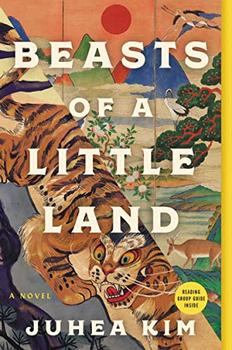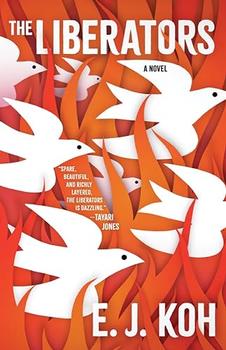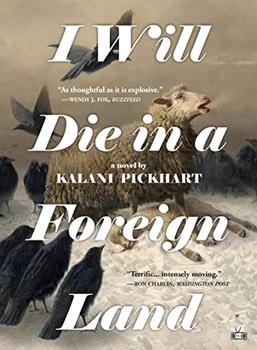Summary | Excerpt | Reviews | Beyond the book | Read-Alikes | Genres & Themes | Author Bio

A Novel
by Juhea KimAn epic story of love, war, and redemption set against the backdrop of the Korean independence movement, following the intertwined fates of a young girl sold to a courtesan school and the penniless son of a hunter.
In 1917, deep in the snowy mountains of occupied Korea, an impoverished local hunter on the brink of starvation saves a young Japanese officer from an attacking tiger. In an instant, their fates are connected—and from this encounter unfolds a saga that spans half a century.
In the aftermath, a young girl named Jade is sold by her family to Miss Silver's courtesan school, an act of desperation that will cement her place in the lowest social status. When she befriends an orphan boy named JungHo, who scrapes together a living begging on the streets of Seoul, they form a deep friendship. As they come of age, JungHo is swept up in the revolutionary fight for independence, and Jade becomes a sought-after performer with a new romantic prospect of noble birth. Soon Jade must decide whether she will risk everything for the one who would do the same for her.
From the perfumed chambers of a courtesan school in Pyongyang to the glamorous cafes of a modernizing Seoul and the boreal forests of Manchuria, where battles rage, Juhea Kim's unforgettable characters forge their own destinies as they wager their nation's. Immersive and elegant, Beasts of a Little Land unveils a world where friends become enemies, enemies become saviors, heroes are persecuted, and beasts take many shapes.
When I finished reading Beasts of a Little Land, the first thought that came into my head was that this did not read like a debut at all. From the story structure to the development of the characters, to the historical details as well as the various themes and motifs incorporated into the narrative, the writing flowed so well and so seamlessly that I was completely immersed in this epic story from beginning to end (Louisa L). Juhea Kim's Beasts of a Little Land reminds me in some ways of Boris Pasternak's Doctor Zhivago but with much more vivid and captivating characters. Introduced to a suite of individuals from various levels of Korean and Japanese society, we see how they are at once subject to forces larger than themselves (even the Japanese officers) but finding agency within existing structures in order to survive, oftentimes in morally questionable ways (Alyson R)...continued
Full Review
 (655 words)
(655 words)
(Reviewed by First Impressions Reviewers).
.jpg) Juhea Kim's Beasts of a Little Land covers half a century of Korean history, including the Japanese occupation of Korea. The occupation began in 1910, when Japan annexed the Korean peninsula. This occurred after years of attempts by the Japanese government to exert rule over Korea, due in part to its economic interest in the country's geographic positioning and resources.
Juhea Kim's Beasts of a Little Land covers half a century of Korean history, including the Japanese occupation of Korea. The occupation began in 1910, when Japan annexed the Korean peninsula. This occurred after years of attempts by the Japanese government to exert rule over Korea, due in part to its economic interest in the country's geographic positioning and resources.
During colonial rule, the Korean language was forbidden in schools, and Korean historical documents were destroyed. Koreans were expected to assimilate to Japanese culture, to the extent of taking on Japanese names and engaging in Shinto worship, a practice aligned with traditional Japanese religious and ideological beliefs. Japanese occupiers exploited Koreans for ...

If you liked Beasts of a Little Land, try these:

by E.J. Koh
Published 2023
Extraordinarily beautiful and deeply moving, The Liberators is an elegantly wrought family saga of memory, trauma, and empathy, and a stunning testament to the consequences and fortunes of inheritance.

by Kalani Pickhart
Published 2022
Set in Ukraine in 2013, I Will Die in a Foreign Land is an especially moving story of quiet beauty and love in a time of terror; an ambitious, intimate, and haunting portrait of human perseverance and empathy.